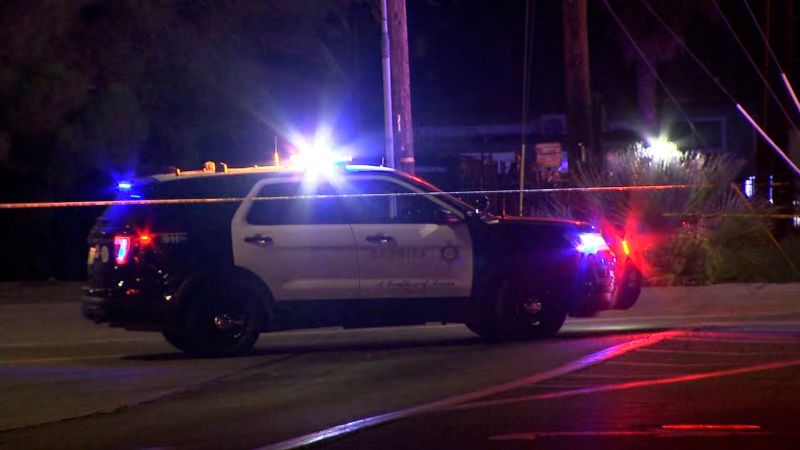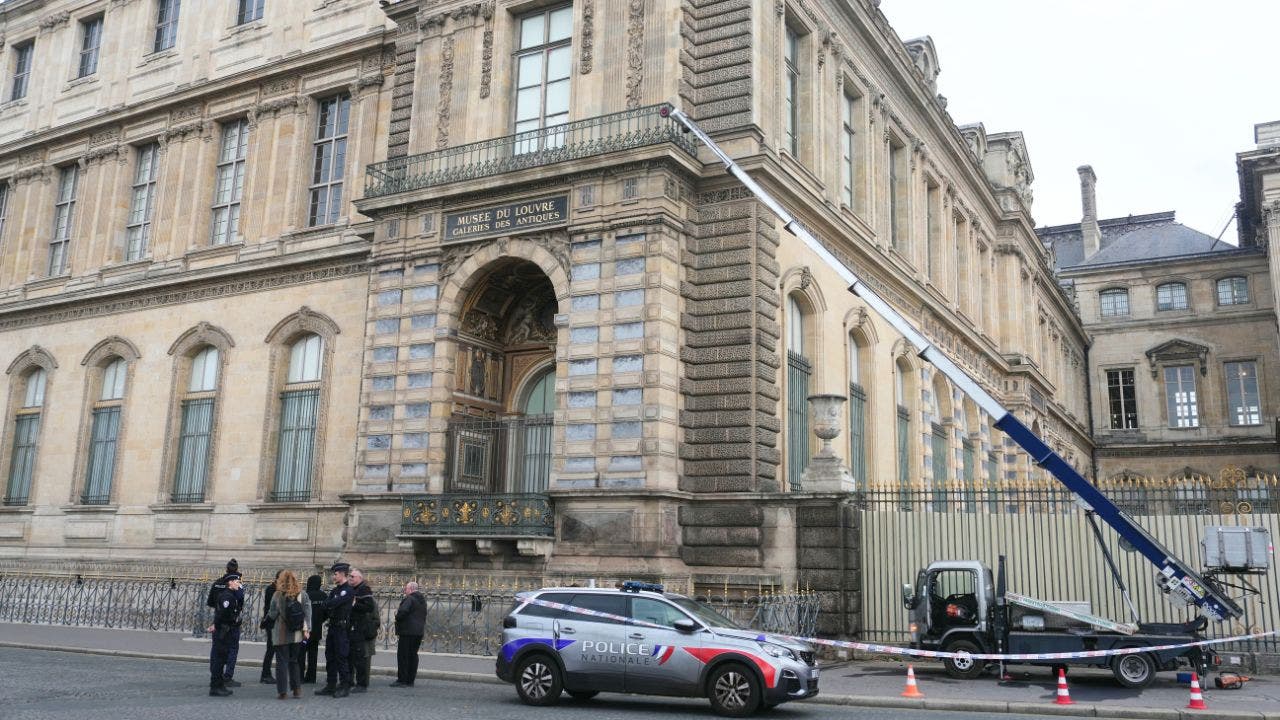A member of the Texas National Guard stands at an army reserve training facility on October 07, 2025 in Elwood, Illinois.
Scott Olson/Getty Images North America
hide caption
toggle caption
Scott Olson/Getty Images North America
President Trump’s federalization and deployment of National Guard troops to both Oregon and Illinois are facing a pair of legal litmus tests — including one at the Supreme Court — that could be decided in the coming days.
At the heart of both challenges is whether or not to defer to the president’s assessment that major cities in both places — Portland and Chicago — are lawless and in need of immediate military intervention to protect federal property and immigration officers, despite local leaders and law enforcement saying otherwise. Both deployments were done against the wishes of Democratic state governors, and were quickly temporarily blocked by district courts.
On Monday, a divided panel on the 9th Circuit court of appeals overturned a temporary restraining order put in place by a federal judge in Portland, siding with the Trump administration, however another temporary restraining order remains in place.
That ruling came days after the 7th Circuit court of appeals upheld a similar block from a federal judge in Illinois on the deployment of National Guard troops to Chicago. The Trump administration has asked the Supreme Court to intervene.
Movement in both cases is expected in the coming days, in what has been a dizzying pingpong of legal disputes around Trump’s use of the military domestically in several Democratic-led cities around the country. And while any decision will only impact troop deployment in an individual state, they could impact how courts weigh in on such cases going forward — and embolden the administration, legal experts say.
“This could be a pretty seminal week in terms of the bigger legal fight over domestic deployments,” says Scott R. Anderson, a fellow at the non-partisan Brookings Institution and senior editor of Lawfare.
The 9th Circuit and Portland, Ore.
The 9th Circuit’s decision earlier this week only applies to one of the two temporary restraining orders that U.S. District Judge Karin Immergut issued this month to block the National Guard deployments — meaning that troops can still not be on the streets in Portland. But the federal government has asked Immergut to remove her second temporary order. A court hearing has been scheduled for Friday to discuss the dissolution of that order.
Karin J. Immergut, nominated to be U.S. district judge for the District of Oregon, attends a judicial nomination hearing held by the Senate Judiciary Committee October 24, 2018 in Washington, D.C.
Win McNamee/Getty Images North America
hide caption
toggle caption
Win McNamee/Getty Images North America
The 9th Circuit is also deciding whether or not to revisit the ruling made earlier this week with a larger group of judges — and that decision could come before Immergut’s deadline.
Trump has said that the 9th Circuit decision has made him feel empowered to send the National Guard to any city where he deems it necessary.
“That was the decision. I can send the National Guard if I see problems,” Trump told reporters Tuesday. In recent days, Trump has renewed an interest in sending troops to San Francisco.
Justin Levitt, a law professor at Loyola Marymount University Loyola Law School and an expert in constitutional law, worries the ruling by the 9th Circuit “authorized blindness to facts.”
“It said [Trump] can decide that there’s a war when there’s nothing but bluebirds,” he says, noting that’s likely why an immediate call for a full review was made. “I fully expect a larger group of 9th Circuit judges to say we don’t have to be blind to what’s actually going on in order to give ample deference to the Trump administration.”
The Supreme Court and Chicago
At the same time, the Trump administration has issued an emergency appeal to the Supreme Court on whether National Guard troops can be deployed in Illinois, after the 7th Circuit court of appeals upheld a district court’s block.
It’s unknown when, or if, the Supreme Court will issue a decision, although experts expect it in the coming days as well.
The decision, although not precedent-setting, will likely clarify the president’s power to deploy federal military resources — and how deferential the courts should be to his administration’s presentation of facts — but only to a point. Emergency decisions are usually short, without much reasoning provided by the justices, experts say.
“It ends up kind of putting the onus on district and appellate courts to read the tea leaves of those interim orders to inform these much larger questions in very different factual environments, you know, possibly months in the future,” says Chris Mirasola, a national security law professor at the University of Houston Law Center.
National Guard troops arrive at an immigration processing and detention facility on October 09, 2025 in Broadview, Illinois.
Scott Olson/Getty Images North America
hide caption
toggle caption
Scott Olson/Getty Images North America
He says that while the emergency decisions from the Supreme Court don’t apply broadly, in recent months, some judges have started to treat them as if they do.
“I think what we’re going to get in at least the medium term is even more confusion than we’ve had so far,” he says.
But just how the Supreme Court might weigh in isn’t clear.
“I think it’s a harder case for the Supreme Court than some people might think, who go in with the assumption the Supreme Court is just naturally inclined toward the administration’s positions on things — and it is in many contexts,” says Anderson of the Brookings Institution.
He says that while it’s standard for courts to be deferential to the president, it’s also standard to believe the facts presented by the local courts.
“That is a tricky, tricky sort of situation here,” Anderson says.
What could this mean for possible deployments going forward?
These two expected decisions will only directly affect Portland or Chicago. But the implications of both – especially something from the Supreme Court – could have ripple effects in future litigation.
Elizabeth Goitein, senior director of the Liberty and National Security Program at the Brennan Center for Justice, says that what’s particularly worrying is that the Department of Justice has been expressly celebrating high arrest counts by law enforcement in places like Chicago, while still saying the military is necessary to help.
“If the bar is so low that the President can use the military at a time when his administration is touting how effective civilian law enforcement is, it becomes hard to imagine a scenario where he couldn’t deploy the military,” she says.
Experts say that these legal challenges are just the beginning of what will surely be a long and winding road through the U.S. court system.
“This is really just the first battle. There are a lot of legal questions that come after this,” Anderson says.

























